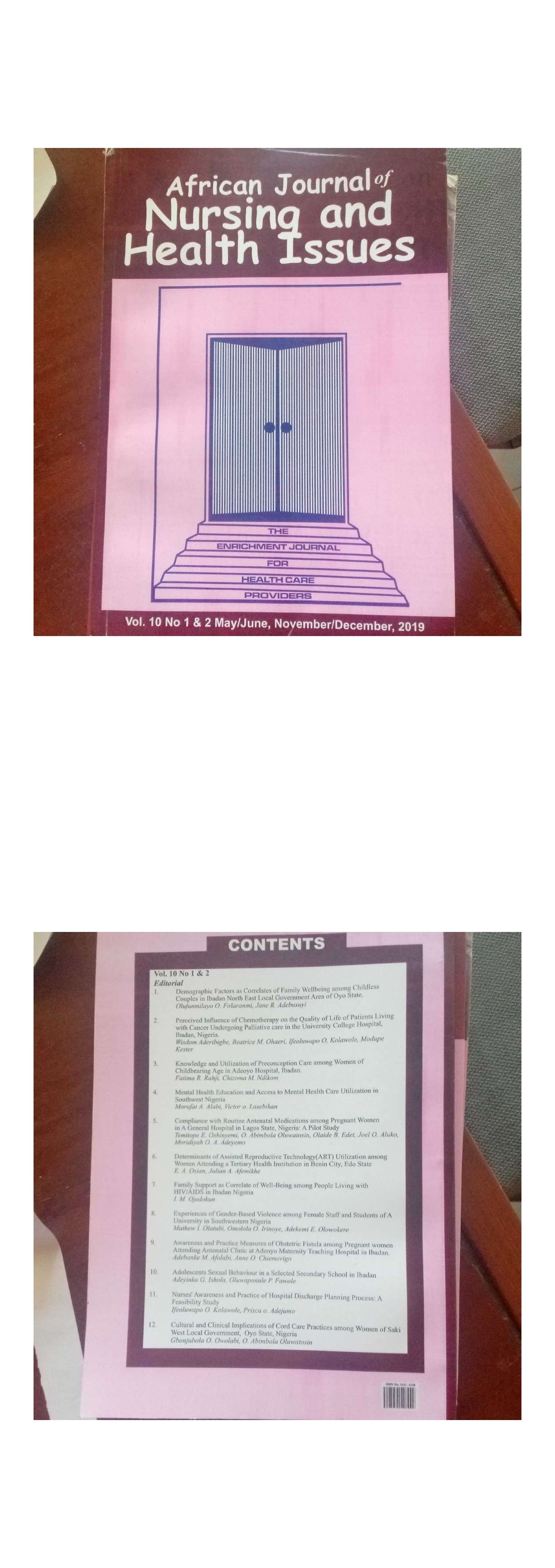
CULTURAL AND CLINICAL IMPLICATIONS OF CORD CARE PRACTICES AMONG WOMEN OF SAKI WEST LOCAL GOVERNMENT, OYO STATE, NIGERIA
Background: Harmful cultural practices relating to umbilical cord care may predispose neonates and infants to morbidity and mortality in Oyo State, Nigeria.
Aim: The study explored the cultural and clinical implications of umbilical cord care practices among women in Saki West, Oyo State, Nigeria.
Methods: A well-structured questionnaire was administered to sixty-two (62) women who were randomly selected from the Saki-West Local Government of Oyo State, Nigeria. The study applied frequency distributions, chi-square, and spearman rank correlation to identify cord care practices among the respondents, using SPSS 16.0.
Results: The study shows that crude methods of cord care practices among rural women were not significantly associated with poor educational background, beliefs, previous experiences, religion, or occupation (p >0.05). Results also show that ashes, saliva, and salt (24.2%), ashes and saliva (12.9%), the back of a tree and salt (9.7%), the blade of grass (9.7%), the unprotected razor blade (19.4%), and thread (66.1%), among others, remain predominant as current cord care materials.
Conclusion: Rural women still use traditional methods of caring for the umbilical cord, which has implications for both neonatal morbidity and mortality. Community-based intervention strategies that will be affordable and available should be the priority of policymakers for the community.
